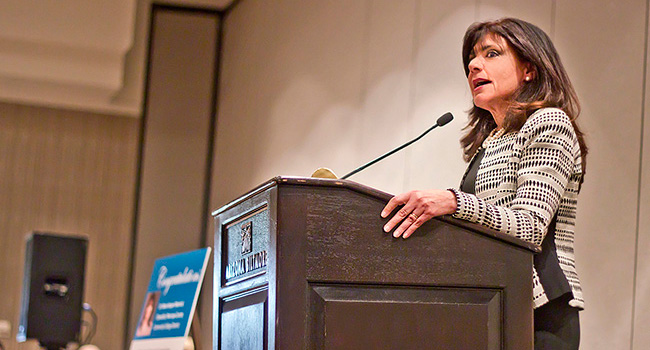|
“The Maricopa County Community College District (MCCCD) has made great progress in advancing innovation-oriented programs over the past year in a cost-efficient way,” said Chancellor Maria Harper-Marinick, “while pledging further results-oriented reforms in the near future.” From programs covering drone systems to cybersecurity to nanotechnology, MCCCD is offering an innovation agenda with resources to help prepare students for the economy of the future, while ensuring that its educational programs remain affordable for families and taxpayers alike. “At Maricopa Community Colleges, we’re redoubling our commitment to innovation to ensure that all of our students have the tools needed to compete for the jobs of tomorrow. In the coming months, we’ll be announcing additional results-driven innovation initiatives that will enhance our existing programs at no additional cost to students or taxpayers,” said MCCCD Board President, Laurin Hendrix. “By putting the future of our students first, we will continue to implement smart reforms that deliver high quality educational outcomes at a low cost to families.” “The success of our students is reflected in the health and economic vitality of our community, and sustained success in the future requires a long-term commitment to innovation. We are proud of the progress we have made in the past year to deliver on our promise of high quality, affordable education for more than 200,000 students at MCCCD – and there is more to come,” said Dr. Maria Harper-Marinick. In recent months, MCCCD has introduced multiple new initiatives as part of its commitment to innovation from an educational, institutional, and cost savings standpoint. These programs are designed to ensure MCCCD students have the skills required for success in the technological workforce of the future, and cover cutting edge topics such as cloud computing, cybersecurity, UAV training, nanotechnology and other STEM areas. Below are some highlights of recent MCCCD initiatives: • Scottsdale Community College unveiled a state-of-the-art, expanded computer networking lab to help students become certified and trained in cloud computing and virtualization. SCC’s lab and virtual data center’s expanded capacity now supports 1,000 virtual machines. • Taking effect this term, Phoenix College launched a new S-STEM scholarship program for more than 11,000 students. The scholarship offers significant financial assistance to students who are pursuing degrees in the fields of computer science, engineering, and related STEM (Science, Technology, Engineering, and Mathematics) fields that lead to potential • As part of its designation as a Red Hat Academy, Glendale Community College (GCC) launched a new program that teaches students how to deploy, administer, manage and secure Red Hat Enterprise Linux and prepare them to take the Red Hat Certified System Administrator (RHCSA EX200) certification exam. In addition, students who complete their courses will be able to take this certification exam at a 50 percent discounted rate. • For the first time, Phoenix College is now offering a Micro-NanoTechnology course that provides students with hands-on laboratory experience. Students are learning how to use advanced instrumentation such as a scanning electron microscope (SEM) to view very small objects, energy dispersive x-ray spectroscopy (EDXS) to determine the elemental makeup of objects, and an atomic force microscope (AFM) to study three-dimensional topography and properties surfaces at extremely high magnification levels. • This year, GCC participated in the National Cyber League competition for the first time and scored extraordinarily well. Students worked through real-world lab exercises and competed against over 3,000 other teams from across the United States. Despite the fact that this was the first year GCC participated in the event, students placed in the Gold level and achieved the highest level of knowledge and skills (Top 15%) for the Western Conference. • Beginning Fall 2018, Mesa Community College will offer a Blockchain Technology Certificate of Completion, becoming one of the first community colleges in the country to provide a blockchain technology certificate program that will prepare students for emerging high-tech careers. MCC is also one of six colleges in the country hand-picked by Apple to deliver special coding certifications. “These initiatives reflect our enduring investment in the future of our students and our community. As we roll out additional components of our agenda, Maricopa Community Colleges will focus on innovations inside and outside the classroom to ensure the best results for students, families and taxpayers. Stay tuned for exciting developments in the weeks and months to come,” added Chancellor Harper-Marinick. |




